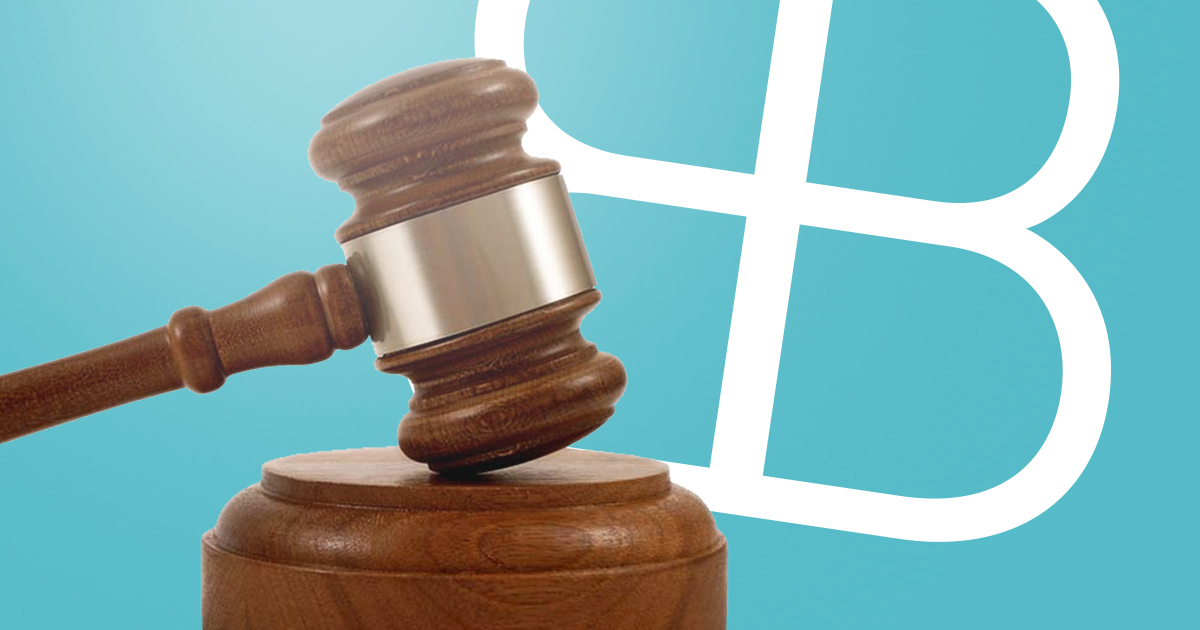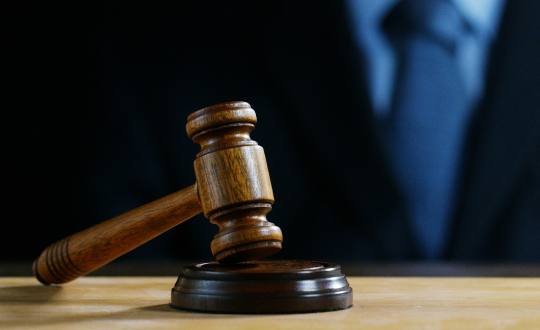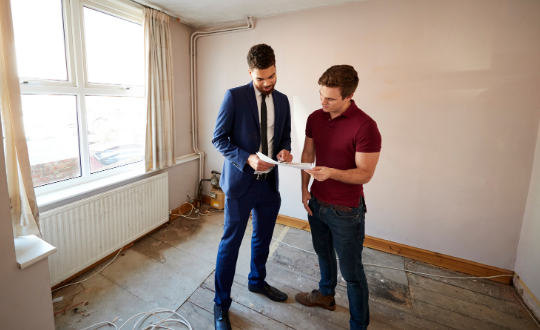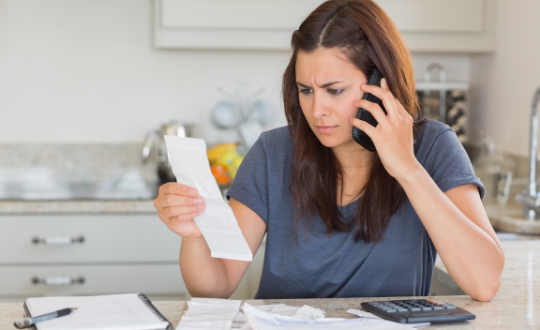Should You Buy a House at Auction?

When you buy a house at auction, you generally have the opportunity to find a bargain – but not every house bought at an auction turns out to be a good investment for the buyer. If you are thinking about buying property through an auction, it is essential that you know how the process works and are aware of all of the potential risks, to decide whether the benefits outweigh the risk.
In this article, we take an in-depth look at how the auction process works, outline what you will be required to do if you do buy at auction and we explain the main risks associated with buying a house at an auction.
Many people are put off buying property at auction because they do not know what the process involves, or they believe that properties that become available through auction are not going to be the type that they are interested in. However, for many people, buying a property at auction can be financially beneficial.
Short for time? Here’s a quick video giving an overview of buying a home at auction.
Benefits of buying a house at auction
You can find properties that are not on the open market
Buying a property through an auction allows you to find properties that are not found on the traditional market.
Cheaper properties than the open market
Property investors often buy property at auctions because they know that properties can be bought for considerably cheaper than properties that are on the open market.
It is not just property investors who are able to benefit from auctions though, people looking for a good value property to live in can also take advantage of the auction prices.
The property is not in a chain

In addition to the price, other benefits include that the property will not be in a chain, so the purchase can usually be completed quickly without worrying about it falling through.
Buy and move into the property faster
The process of buying houses at auction tends to be much quicker than buying houses that are on the open market. You do not have any delays due to being in a chain and usually the property will be vacant, and the keys are ready for you to take pretty much once you have won the auction.
Buying property on the open market can be slow, especially if the seller is not in a rush to move. They might be holding out for a large offer and are in no hurry to sell. With an auction, the seller is usually desperate for the sale to go through as quickly as possible. The seller could be a bank who has repossessed the property due to non-payment and they want to get their money paid back. Other circumstances could be that someone needs to sell their property as quickly as possible, or the seller has struggled to sell the property on the open market.
Free phone and video consultations are provided in the U.K.
Get StartedHow buying a house at auction works
What to do before the auction:
Sign up with an auction house
The first action you will need to take is to sign up with the auction houses that cover the area that you are interested in buying a property. Once you have signed up for their mailing list, you should receive their auction catalogue each month or however often they hold auctions. This enables you to have a preview of the properties that will be up for auction.
Arrange a viewing
If you find a property that you are interested in, then you can arrange a viewing of the property through the auction house. This will give you the opportunity to go and inspect the condition of the property. It will help if someone with some building/construction knowledge attends the viewing with you, so that they can help to identify any possible issues with the property that could end up requiring costly repairs.
Consider getting a survey
If it looks like there could be a lot of work required on the property, but you are still interested in buying it, you should arrange for a survey to be completed for a more thorough assessment of the property condition. You may want to arrange a survey even if there isn’t any noticeable work needed.

Legal checks
You should ask the auctioneers for a copy of the auction particulars, which should include details such as the searches. If they do not include the searches, you should instruct a solicitor to do the searches, as a big problem could come up. You do not want to bid for a property if you do not have the searches completed. It is also a good idea to get a solicitor to read through the legal pack to check there are no loopholes or other legal concerns to be aware of.
Research everything you can
Do as much research as you can about the area and find out how much similar properties are being sold for in the local area. The more research that you do, the better idea you will have about whether the property will be a good purchase, or if there is a major reason why the property has had to be sold via auction. Visiting the property at different parts of the day and night will also help to see if there is a noise problem or something else that you do not see in the daytime.
Be aware of your auction competitors
One of the benefits of buying a house at auction is that there will usually be less competition compared to buying a property that is being well-advertised on the market. However, you will probably find that you are up against experienced property investors who are competing to buy the best value properties.
Get insurance in place
If you go through with the auction purchase, you will need to have insurance in place for the property on that day. You should arrange this in advance, as you will also find out if there are any issues with getting insurance. There may be aspects of the property that make it more difficult to get insurance, such as being in a flood area or having subsidence etc. Or there may be some unique features of the property that will require a specialist insurance company to provide cover.
Attend another auction
If you have time before you find a property you are interested in, you should go to a few other auctions so that you understand how the process works. This will help you to know exactly what will happen on the day and you should be able to stay calmer when the bidding starts.

See What Our Clients Have To Say
How to buy a house at auction
Once you have signed up to an auction house, found a property you are interested in potentially buying, which you have viewed and conducted as much research as possible, you will need to prepare everything you need for the auction.
If you are taking out a mortgage for the property, you will usually be required to provide a Mortgage in Principle as evidence that you can have a mortgage approved to cover the price of the property.
On the day of the auction
Take the required ID
You will need to take two forms of ID, such as a passport or utility bill and you must also provide proof that you can pay the deposit, as this will usually be required on the day, as part of the auction sale.
Stick to your limit
You should have already decided on an upper limit for the amount that you are prepared to bid for the property. It is important that you stick to the limit and do not get carried away with the auction process. If you end up paying more than you wanted to then you might not be getting the main benefit of going through an auction, which is the reduced price!
Ignore the guide price
Don’t expect to pay the guide price, as the auction house will usually set the guide price lower, so that it draws more interest. Alternatively, a guide price may actually be more than is typical for homes in the area. Doing your research and staying calm are key to being successful at an auction.
Get there early
Get to the auction early, so that you can get a seat where the auctioneer will clearly be able to see you when you are bidding. The auction house should be able to answer any queries you have about the bidding process, but many houses will require you to set your maximum bid in advance and you might also need to provide your 10% deposit before the auction takes place, so there is no doubt that you have the amount required.

Don’t worry if the reserve is not met
If, during the auction, the reserve price is not met, the seller may be happy to accept the highest bid after the auction finishes, so it is worth approaching them in this scenario.
The potential risks of buying houses at auction
There are lots of risks involved with auctions, which is why you should always proceed with great caution and do as much research about properties as you can.
The main risks include:
Buying a property with lots of expensive problems
The most common risk is that you could end up buying a property that requires a lot of work that you were unable to identify at the viewing. This is why it is recommended that you arrange for a survey to be completed before the auction, so you have a much better idea of what condition of property you are about to buy.
The only problem with paying out for a survey is that you might be in the same situation with a number of auction properties, so paying for two or three surveys will soon get very costly. Therefore, if you do know somebody with a good understanding of properties and evaluating their condition, taking them along is very beneficial.
Remember, if you are making a saving of around £20,000 compared to similar properties on the open market but then you need to pay over £20,000 in repairs for structural work, then it is not a good deal for you. Lots of property issues can be hidden, so if you are looking at older properties in particular, you should definitely be thinking about getting a survey completed.

Losing money on surveys and solicitor’s fees
Another big risk of buying a house at auction is that you might pay out for surveys and solicitors’ fees for conducting searches and reading the legal documents, and then you might not go ahead with the purchase and you lose that money. You might decide that it will cost too much to repair the property once you get the results of the survey, or you might lose the auction if someone else is prepared to pay more. Either way, all of the money you have spent up to this point is lost.
Not enough time to research the property
Some auction houses will mail the property list out just a few weeks before the auction is due to take place. This means that you will have limited time to arrange a viewing and do all of the necessary area research or arrange for searches and a survey. This means that you will not have a great deal of information about the property that you could potentially end up buying, which leaves you open to the issue of there being lots of unknown and expensive repairs to pay for.
Auction house administration fee
On top of paying the usual costs such as stamp duty, solicitors’ fees, valuation fee, survey fee, mortgage arrangement fee etc. you will also need to pay the auction house an administration fee that will usually be between £200 and £300.
You need to have the money ready
If you win the auction, you may be required to pay the deposit on the same day and will only have a certain number of days afterwards to pay the total price. Everything will move very fast, and you do not have the same length of time to consider whether you are making the right decision.
What happens once you have won the auction?
If your bid is successful and you win at the auction, you will pay your deposit and then the traditional method of auction is that you will exchange contracts immediately and then have 28 days to complete.

However, some auction houses operate differently and the more modern way that the process works is that you do not have to exchange contracts straight away. Instead, you pay a non-refundable fee to reserve the property, which will usually be a percentage of the bid. Rather than only having 28 days to complete, you would have 56 days, giving you much more time to arrange your mortgage.
Conclusion
There are lots of pros and cons related to buying a house at auction and while it suits a lot of people, particularly property investors who are used to buying houses at auctions, it can be a minefield for others who are not experienced in the process. If you do decide that buying property at auction is the right option for you, make sure that you fully understand the process and that you consider all of the risks.
Many people make the mistake of thinking that buying a house at auction will help them to land a bargain but the reality can be very different, with scenarios where the buyer ends up with a property that causes them a lot of stress and costs them a lot of money.
You also have to think about if you need to sell the property on, whether it will be difficult to sell. So, as well as doing due diligence before bidding for a property, you have to consider future scenarios such as if you struggle to sell the property.
If you are considering taking out a mortgage to buy a property at auction, it may help to speak to an impartial broker, such as Boon Brokers for some advice regarding whether it is the best option for you to buy a property.
Gerard BoonB.A. (Hons), CeMAP, CeRER
Gerard is a co-founder and partner of Boon Brokers. Having studied many areas of financial services at the University of Leeds, and following completion of his CeMAP and CeRER qualifications, Gerard has acquired a vast knowledge of the mortgage, insurance and equity release industry.Related Articles
- The House Buying Process
- What Should I Ask When Buying A House?
- Should I Use A Broker Or Go Direct?
- What Proof Of Income Is Needed For A Mortgage?
- Why Buy A Home In Norwich?
- Reasons Why Mortgage Applications Are Declined
- Is Checkmyfile Trustworthy
- How To Buy A House After Lockdown
- Benefits Of A Commercial Mortgage
- What Is A Deed Of Covenant?
- What Is A Key Facts Illustration?
- What Is An Offset Mortgage?
 Authorised and regulated by the Financial Conduct Authority. No: 973757
Authorised and regulated by the Financial Conduct Authority. No: 973757




